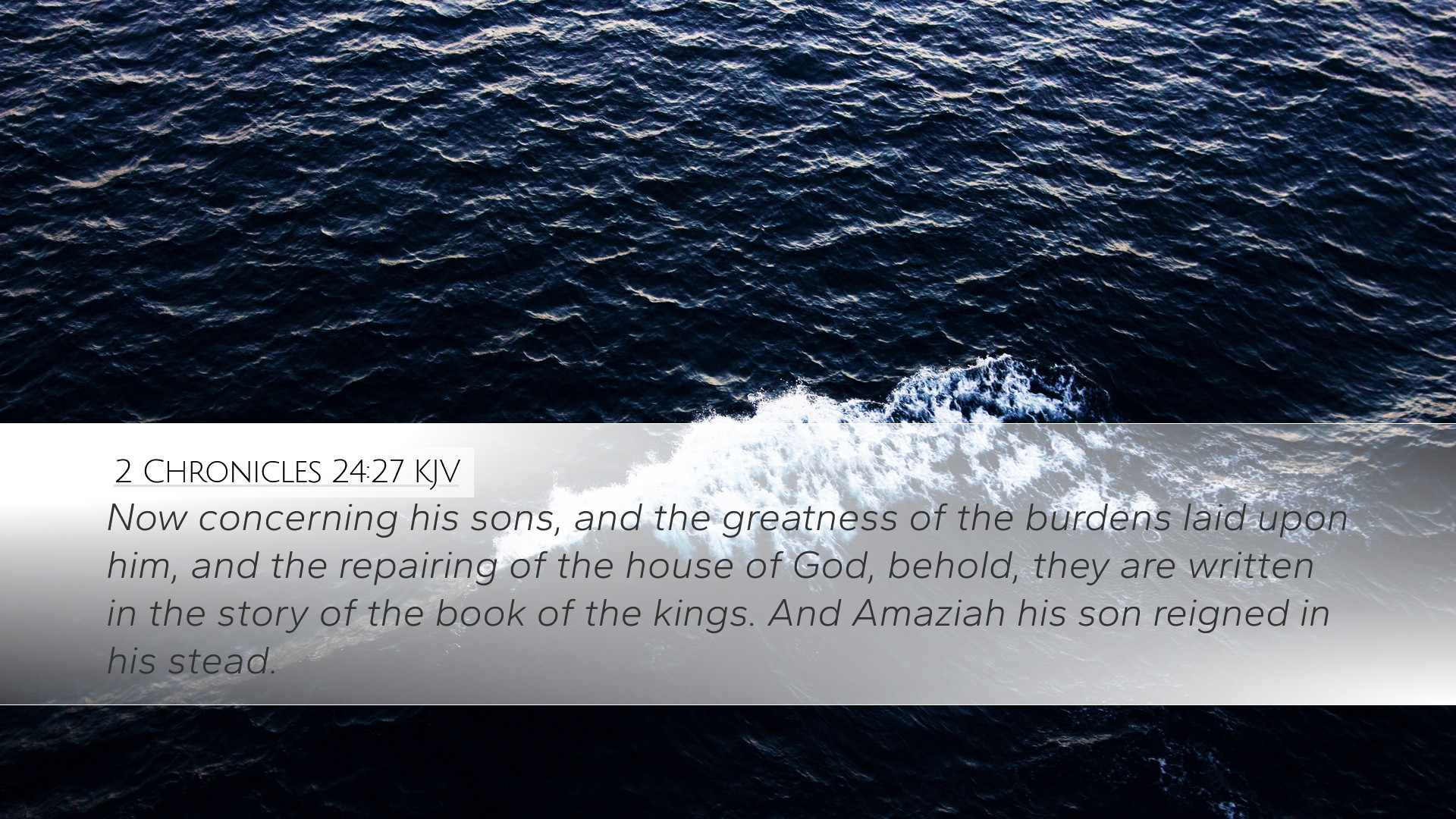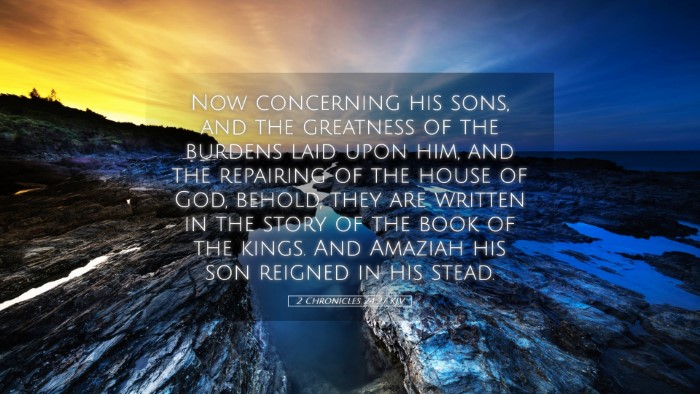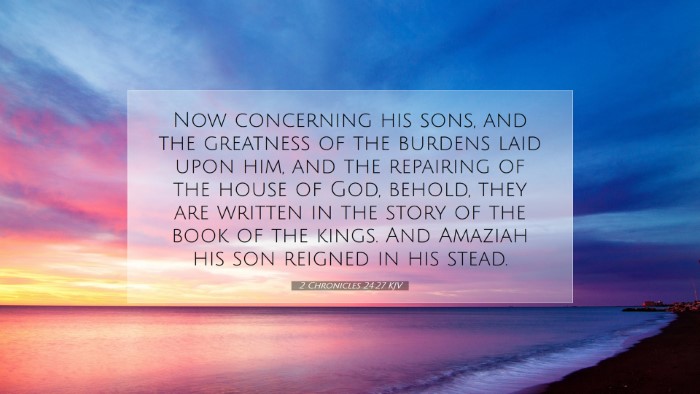Commentary on 2 Chronicles 24:27
2 Chronicles 24:27 states, "Now concerning his sons, and the greatness of the burdens laid upon him, and the repairing of the house of God, behold, they are written in the story of the book of the kings." This verse serves as a transition in the narrative of King Joash’s reign and gives insight into his legacy, particularly focusing on the themes of sons, burdens, and temple restoration.
Contextual Analysis
The context of this verse is crucial for understanding its significance. King Joash, who began his reign as a reformer after a tumultuous ascent to power, is recorded in the Chronicles for his initial zeal in restoring the temple of the Lord (2 Chronicles 24:4-14). However, despite his early faithfulness, his later years reveal a tragic decline that is encapsulated in this verse.
1. Significance of Joash's Sons
Matthew Henry notes that the mention of Joash’s sons represents a significant aspect of his legacy. The education and spiritual formation of children are paramount in the biblical narrative. Joash, despite his accomplishments, eventually failed to guide his children in the faith, which can be seen in their lack of fidelity to Yahweh. This theme emphasizes the importance of godly parenting and the transmission of faith through generations.
2. The Burdens Laid Upon Him
Albert Barnes elaborates that the "greatness of the burdens" refers not only to the physical tasks associated with the temple restoration but also to the spiritual and moral challenges that Joash faced throughout his reign. The mention of burdens reminds leaders—whether within the church or in other spheres—that with leadership comes responsibility, often fraught with obstacles that test one’s character and faith. The burdens Joash bore underscore the need for consistent determination and reliance on God’s strength.
3. Repairing the House of God
Adam Clarke comments on the restoration of the temple, which serves as a pivotal act during Joash's kingship. The temple's physical structure symbolizes the spiritual state of the nation. By engaging in the repair of the house of God, Joash was attempting to rekindle the people's devotion to Yahweh. This act highlights a fundamental element of biblical leadership: restoring the places of worship is integral to revitalizing faith and community.
Theological Implications
The theological implications of this verse extend far beyond the historical account of Joash's reign. They present profound lessons for contemporary readers, particularly for pastors and theologians.
1. Legacy of Leadership
A primary takeaway from this passage is the legacy leaders leave behind. Joash’s initial reforms did not secure his family's adherence to faith, revealing that a leader's impact is significantly measured by their successors. Pastors are reminded that their influence will resonate through those they lead, urging a focus on discipleship and the cultivation of faith in future generations.
2. The Weight of Responsibility
The burdens faced by Joash as he sought to restore the temple reflect the weight of responsibility carried by spiritual leaders today. The challenges of ministry—cultural shifts, doctrinal integrity, and congregational care—require resilience and devotion. A faithful leader must engage with God daily, seeking His guidance in bearing these burdens.
3. Restoration as a Theme
The act of repairing the house of God connects with the broader biblical narrative of restoration. Throughout Scripture, God’s desire for His people is restoration and renewal, evident in both the Old and New Testaments. Leaders are called not just to maintain but to facilitate restorative practices that draw communities closer to God.
Reflections on Spiritual Legacy
As we reflect on this verse, it invites a moment of introspection regarding our spiritual legacies. It asks us to consider:
- What values are we instilling in the next generation? Whether it’s in ministry or personal life, the faith and practices we encourage in those we influence will dictate their own spiritual health.
- How do we navigate the burdens of leadership? Acknowledging that leadership can be overwhelming, we are reminded to lean on community and divine strength in fulfilling our roles.
- In what ways can we contribute to the physical and spiritual restoration of our communities? Christians are called to engage actively in the work of restoration—both in churches and in their broader communities.
Concluding Thoughts
Joash's story, highlighted in 2 Chronicles 24:27, is both a cautionary tale and an inspiration. His early commitment to restoring the temple serves as a model, while the eventual downfall of his legacy warns of the conditional nature of faith and leadership. This verse challenges our current practices, urging us to remain steadfast in our faith and diligent in fostering it in the generations to come.


